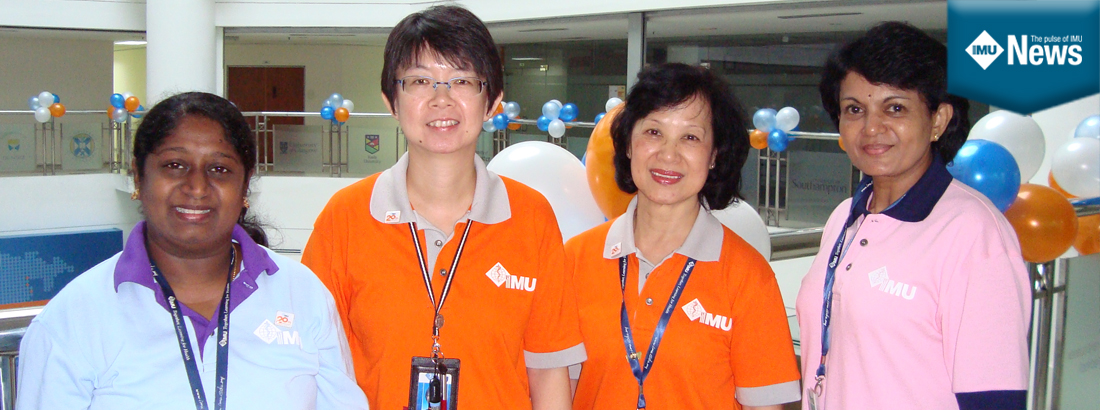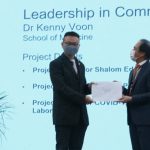It has been a truly challenging journey for me to complete my PhD. With work, dad and mom-in-law’s illness and passing, and battling with nursing care for mom with her fractures and progressing dementia, my spouse’s major heart attack, and my own medical condition, I struggled to stay afloat. I am finally here, my eight years of battle. I almost gave up.
But I praised and thanked the Lord for being with me all these years, guiding me through the long stormy weather. I truly appreciated my husband and my two children for their endless support and comfort, whenever I tend to go insane in completing this work and for enduring my emotional moments of temper, irritation and impatience. 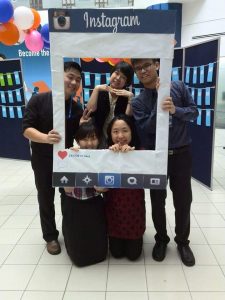 With so many tasks I was challenged every day, the only way to accomplish them all was to apply self-discipline. I was able to juggle my time between family, work and studies because of the discipline I inculcated during my training and working years as a nurse. The stamina needed to work long and odd hours was something that was cultivated when I had to really work through three shifts. I normally only get three to four hours of sleep per day, even until now. While it was truly tiring, I kept reminding myself to constantly focus and look at the positive side of things. Coming back to my PhD area of study, I chose to focus on workplace disability management, and researched on Work-Injury Management and Return-To-Work in the Manufacturing Industry in Selangor, Malaysia. I wish to share my professional perspectives from the observations I made within the manufacturing industry during my tenure as an Occupational Health Nursing Executive from 2001 to 2006. There were many occurrences where workers who sustained injuries while at work were rushed through the recovery and rehabilitation process by individuals (eg healthcare professionals and employers) who tend to not believe that the workers have a legitimate problem. These injured workers were frequently given the advice of light duties by the physician in charge, however most of the time the employers were unsure how to accommodate modified duties for these workers.
With so many tasks I was challenged every day, the only way to accomplish them all was to apply self-discipline. I was able to juggle my time between family, work and studies because of the discipline I inculcated during my training and working years as a nurse. The stamina needed to work long and odd hours was something that was cultivated when I had to really work through three shifts. I normally only get three to four hours of sleep per day, even until now. While it was truly tiring, I kept reminding myself to constantly focus and look at the positive side of things. Coming back to my PhD area of study, I chose to focus on workplace disability management, and researched on Work-Injury Management and Return-To-Work in the Manufacturing Industry in Selangor, Malaysia. I wish to share my professional perspectives from the observations I made within the manufacturing industry during my tenure as an Occupational Health Nursing Executive from 2001 to 2006. There were many occurrences where workers who sustained injuries while at work were rushed through the recovery and rehabilitation process by individuals (eg healthcare professionals and employers) who tend to not believe that the workers have a legitimate problem. These injured workers were frequently given the advice of light duties by the physician in charge, however most of the time the employers were unsure how to accommodate modified duties for these workers. 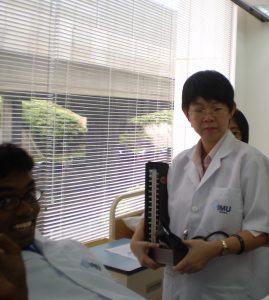 The injured workers were inadequately counselled (by the Human Resources personnel, supervisor, in-house healthcare professional) on the possibilities of early return to work and instead were pressed to return to work once they have exhausted their medical leave entitlement or otherwise face the consequences of having their wage deducted as per company’s policy on prolonged illness agreement clause. Industrial nurses were not empowered to provide holistic counselling to the injured workers as the role of counselling was done by the in-house or visiting doctors. Light duties chits issued by the specialist to the injured workers were just acknowledged by either the human resources personnel or line supervisors or industrial nurses and subsequently kept in the file as none of these persons were competent of planning a productive modification work for the involved worker. The challenges were even greater when the involved workers had musculoskeletal injuries which had resulted in impairment due to losing part of the bodily structures especially lower or upper extremities structures as management personnel were not trained to manage circumstances like this. Thus, rather than being involved in proactive participation to return to work, workers have been seen to accept the consequences as they usually perceived the fact that they could seek much help or assistance on this matter from the current healthcare system and from the employers as well.
The injured workers were inadequately counselled (by the Human Resources personnel, supervisor, in-house healthcare professional) on the possibilities of early return to work and instead were pressed to return to work once they have exhausted their medical leave entitlement or otherwise face the consequences of having their wage deducted as per company’s policy on prolonged illness agreement clause. Industrial nurses were not empowered to provide holistic counselling to the injured workers as the role of counselling was done by the in-house or visiting doctors. Light duties chits issued by the specialist to the injured workers were just acknowledged by either the human resources personnel or line supervisors or industrial nurses and subsequently kept in the file as none of these persons were competent of planning a productive modification work for the involved worker. The challenges were even greater when the involved workers had musculoskeletal injuries which had resulted in impairment due to losing part of the bodily structures especially lower or upper extremities structures as management personnel were not trained to manage circumstances like this. Thus, rather than being involved in proactive participation to return to work, workers have been seen to accept the consequences as they usually perceived the fact that they could seek much help or assistance on this matter from the current healthcare system and from the employers as well. 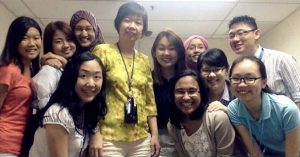 It has now been a decade from my last acquaintance with this industry as I am now an academic. I am still very much interested in following up the progress on this and to determine if any positive change has taken place towards the management of return to work by key stakeholders. How far have the stakeholders of the manufacturing industry progressed with their participation in the work-injury management and return to work and are really looking at helping the injured workers to maximise their functional abilities here, rather than focusing on their disability, i.e. what one cannot perform. I have also taken the opportunity to include nurses in my study as their full contribution towards work-injury management and return to work within their scope of duties was lacking. The nursing practice in Malaysia is still way behind in providing occupational health rehabilitation related services to the manufacturing industry as evidenced in this study.
It has now been a decade from my last acquaintance with this industry as I am now an academic. I am still very much interested in following up the progress on this and to determine if any positive change has taken place towards the management of return to work by key stakeholders. How far have the stakeholders of the manufacturing industry progressed with their participation in the work-injury management and return to work and are really looking at helping the injured workers to maximise their functional abilities here, rather than focusing on their disability, i.e. what one cannot perform. I have also taken the opportunity to include nurses in my study as their full contribution towards work-injury management and return to work within their scope of duties was lacking. The nursing practice in Malaysia is still way behind in providing occupational health rehabilitation related services to the manufacturing industry as evidenced in this study.
Empowering nurses to collaborate in effective decision making for the plan of care in return to work for the workers cannot be achieved by merely receiving instructions from supervisors / managers or doctors. Allowing nurses to have ownership of managing care as a team is vital and they should also be involved in any major governance decisions made by the management.
So, why I decide to pursue my PhD at IMU? With the passion to continue with my professional career development, but facing with financial constraints, I was truly thankful to IMU for offering me a full sponsorship to proceed with my dream which also enable me to progress with this amazing career of mine as an academic.
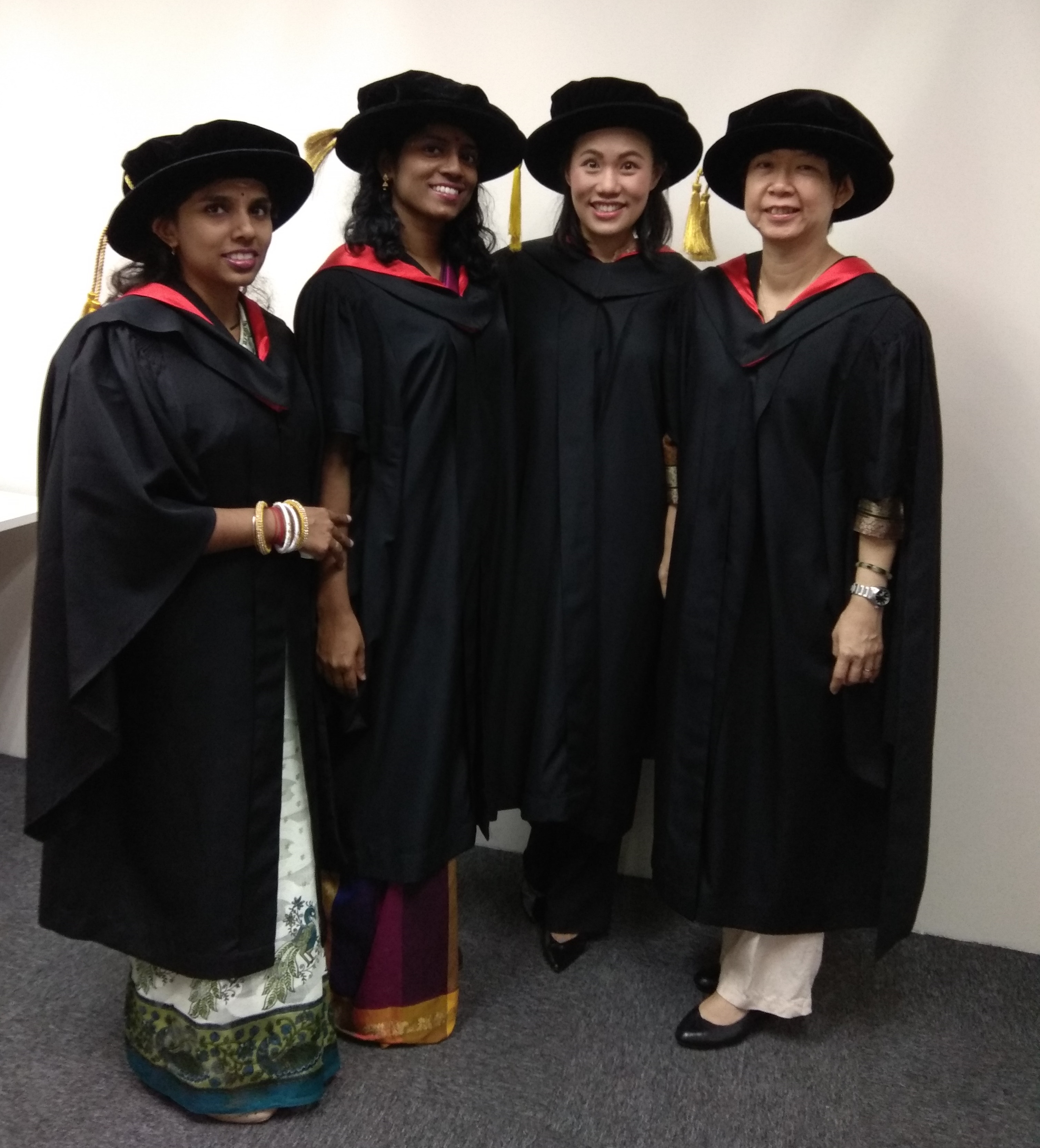
Written by: Siew Wei Fern Siew Wei Fern is currently a lecturer in the Department of Community Medicine, School of Medicine at IMU and graduated with her PhD in June 2018. Related article: IMU Celebrates Convocation Ceremony and the Installation of its Chancellor and Pro-Chancellor




